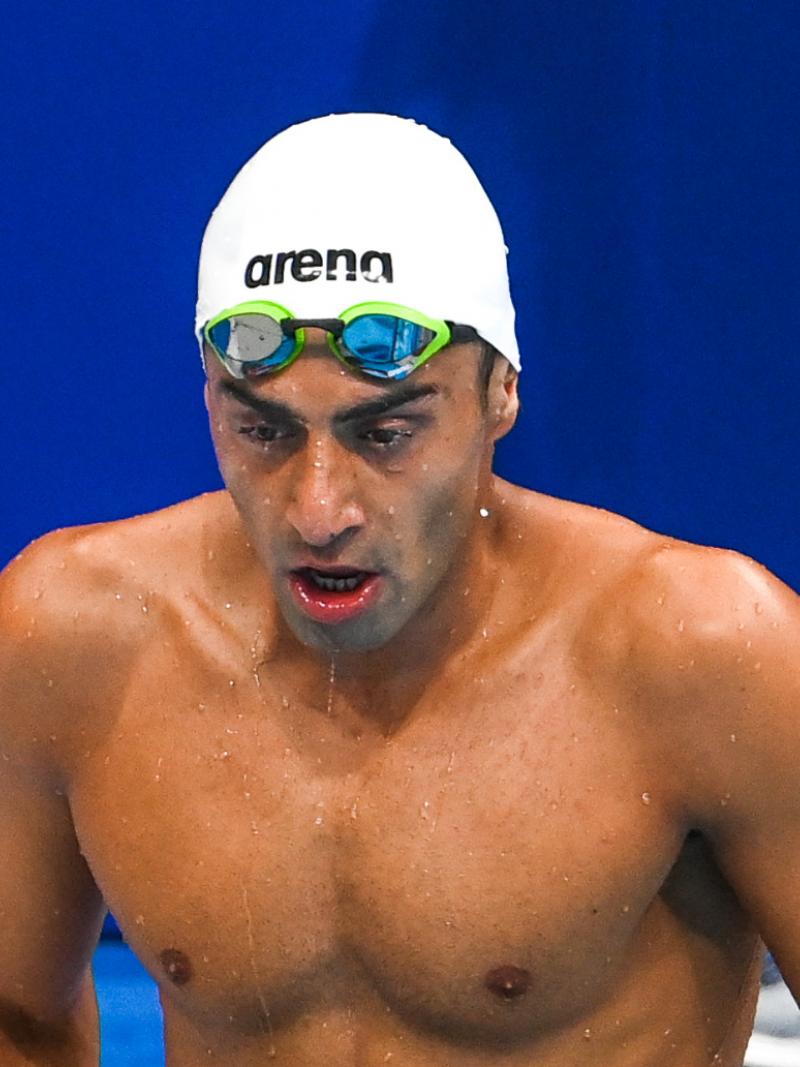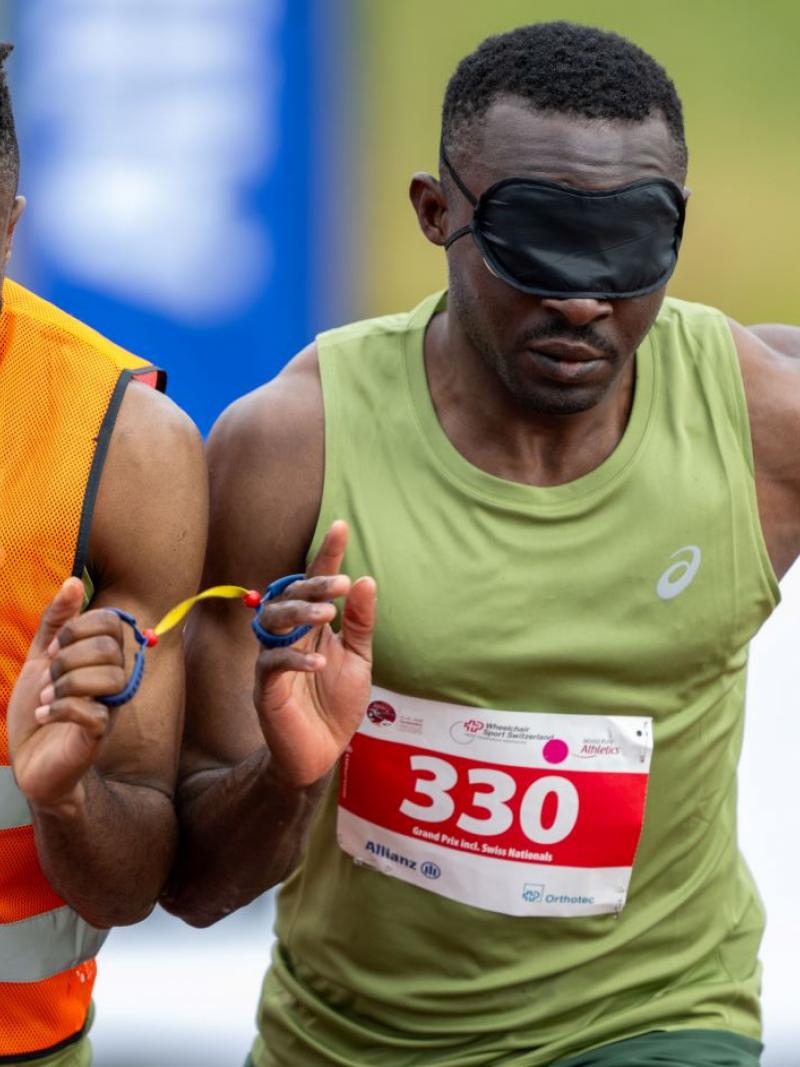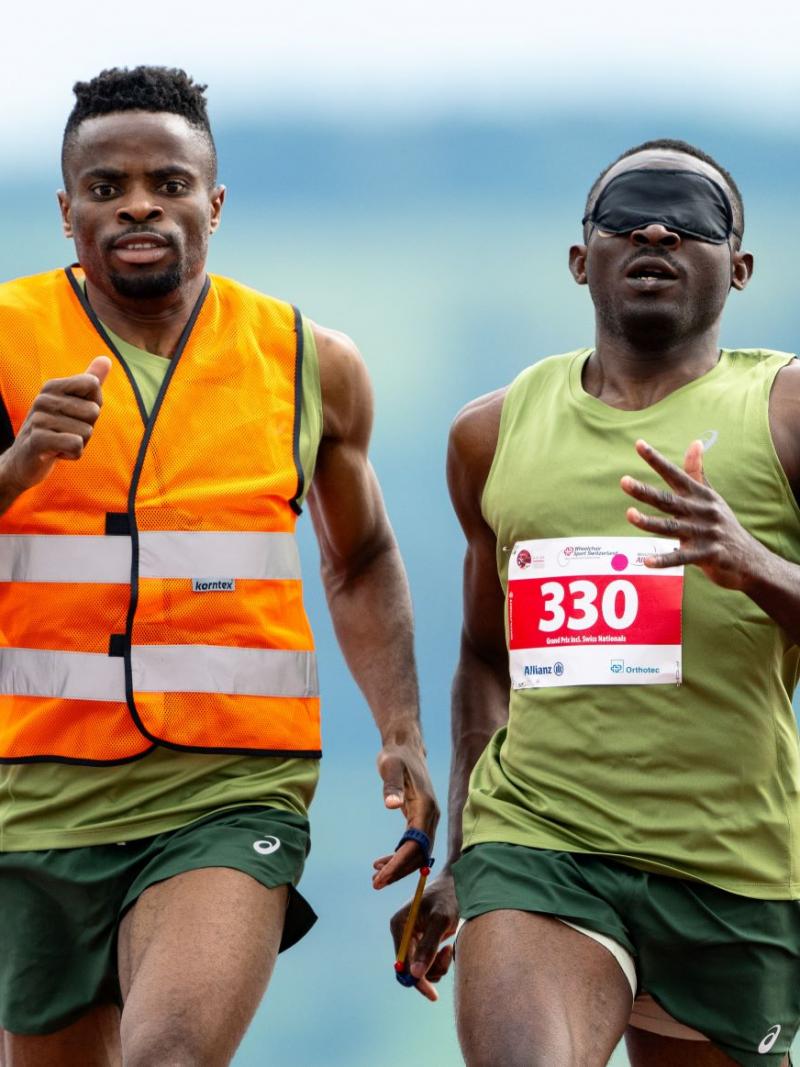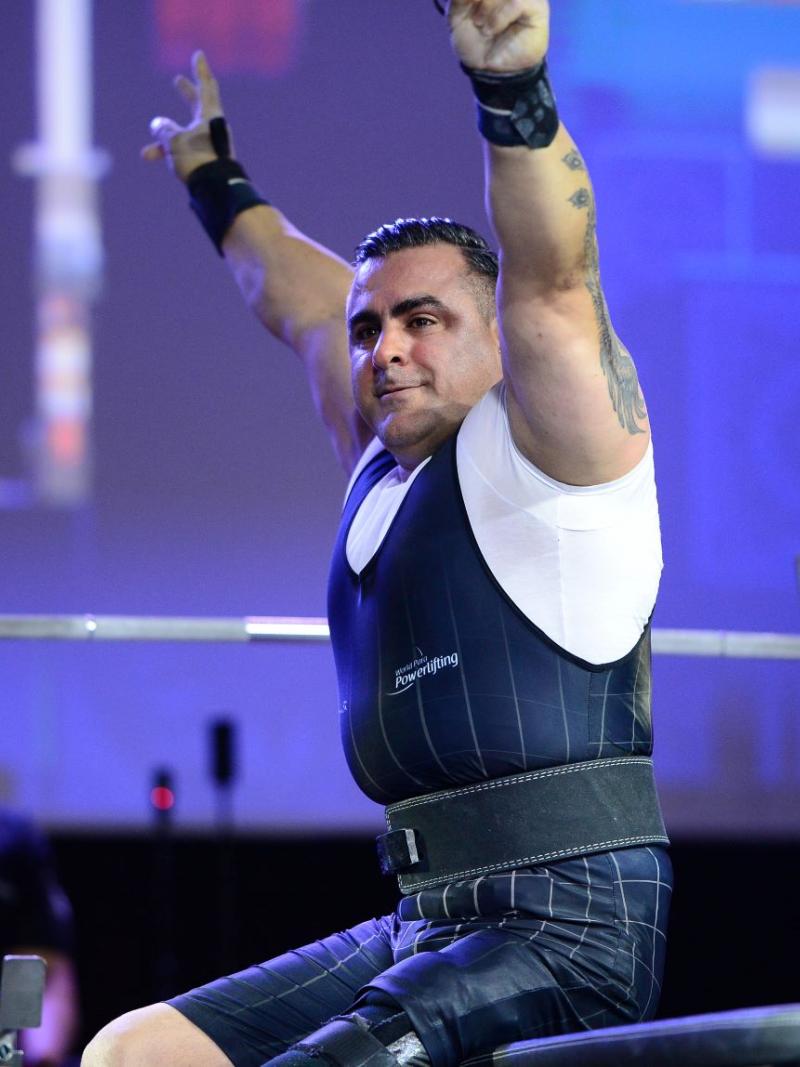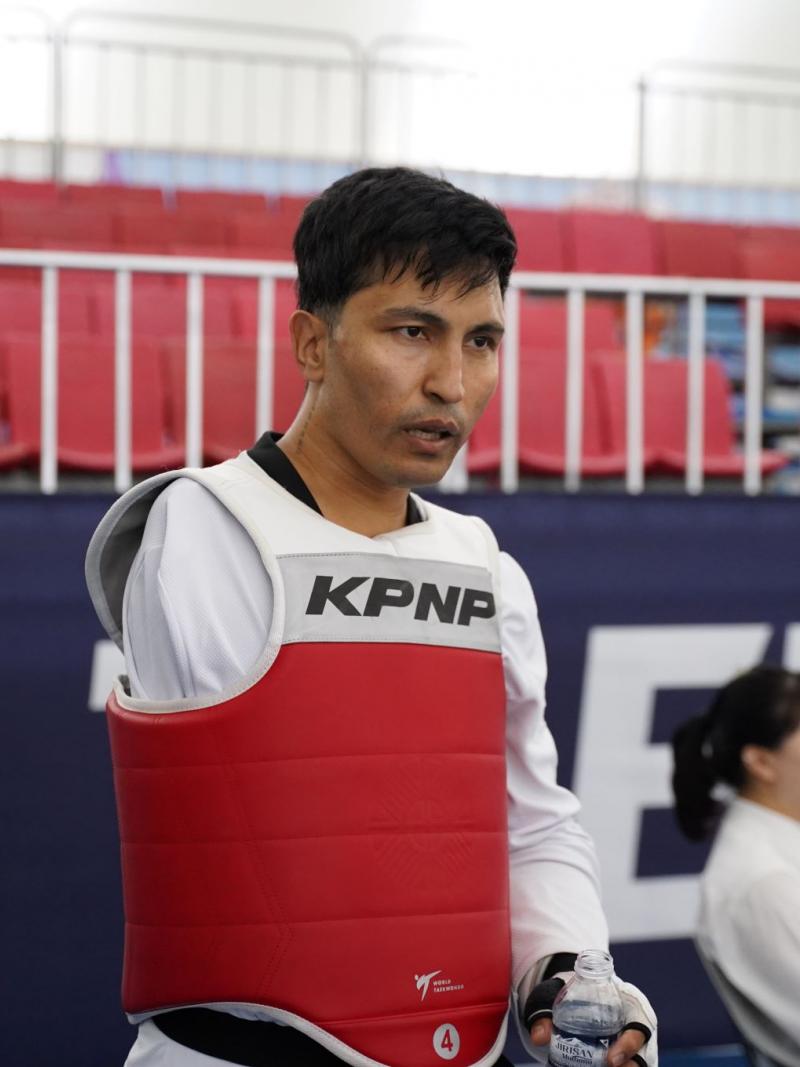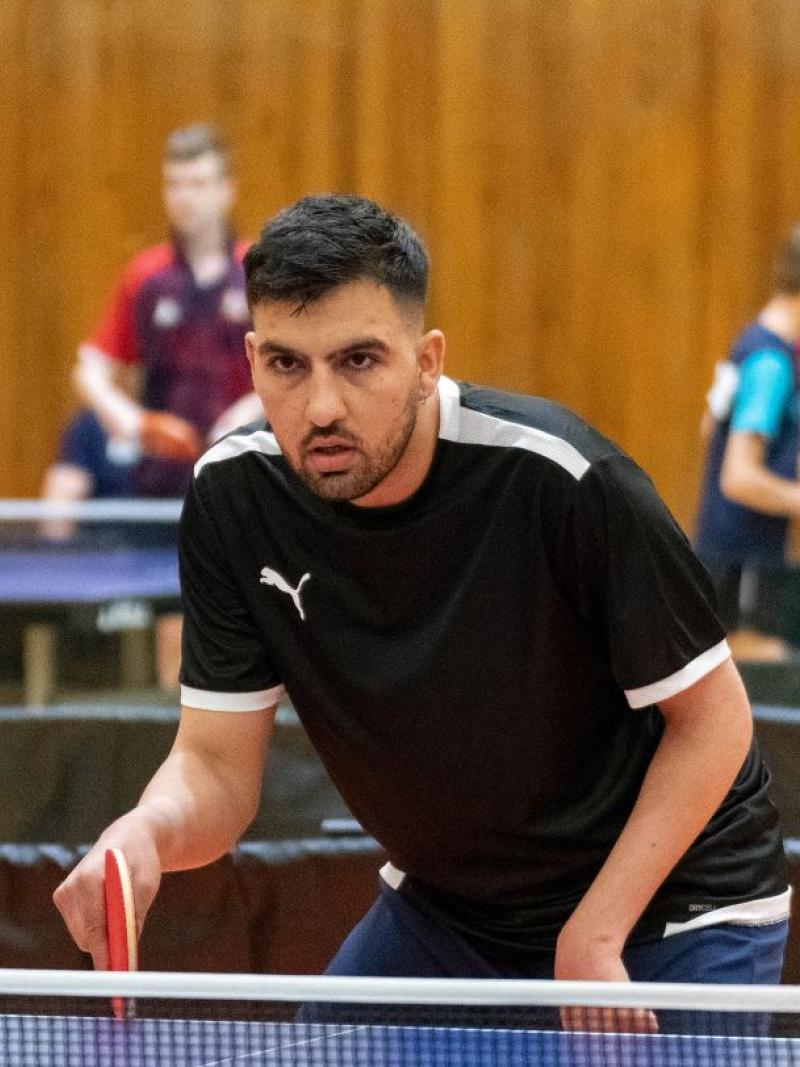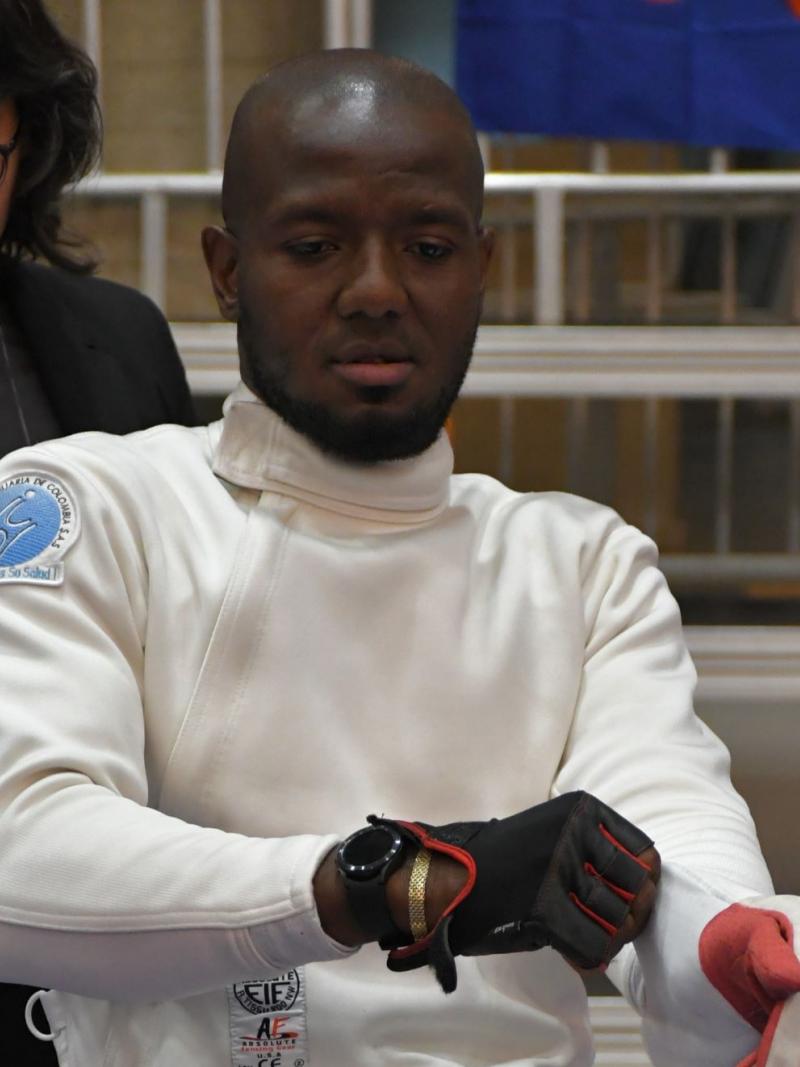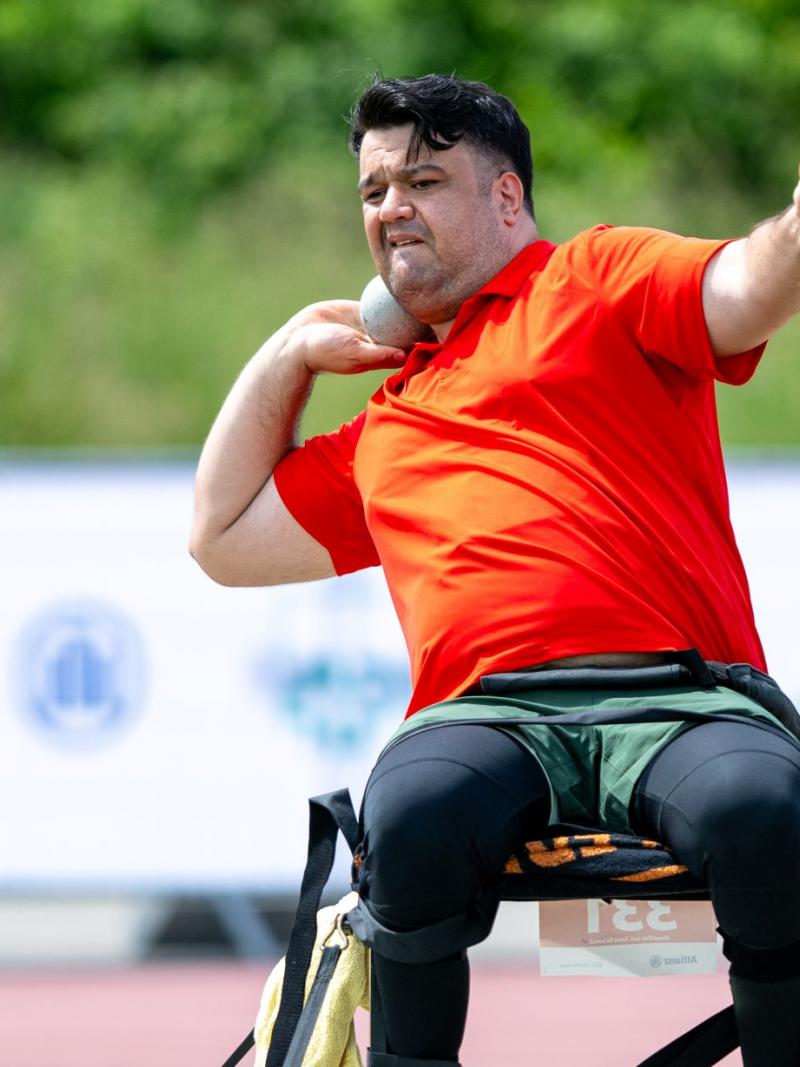Q&A with Refugee Paralympic Team athlete Zakia Khudadadi
Zakia Khudadadi will compete in Para taekwondo as a member of the largest-ever Refugee Paralympic Team The Q&As have been edited for length and clarity 22 Jul 2024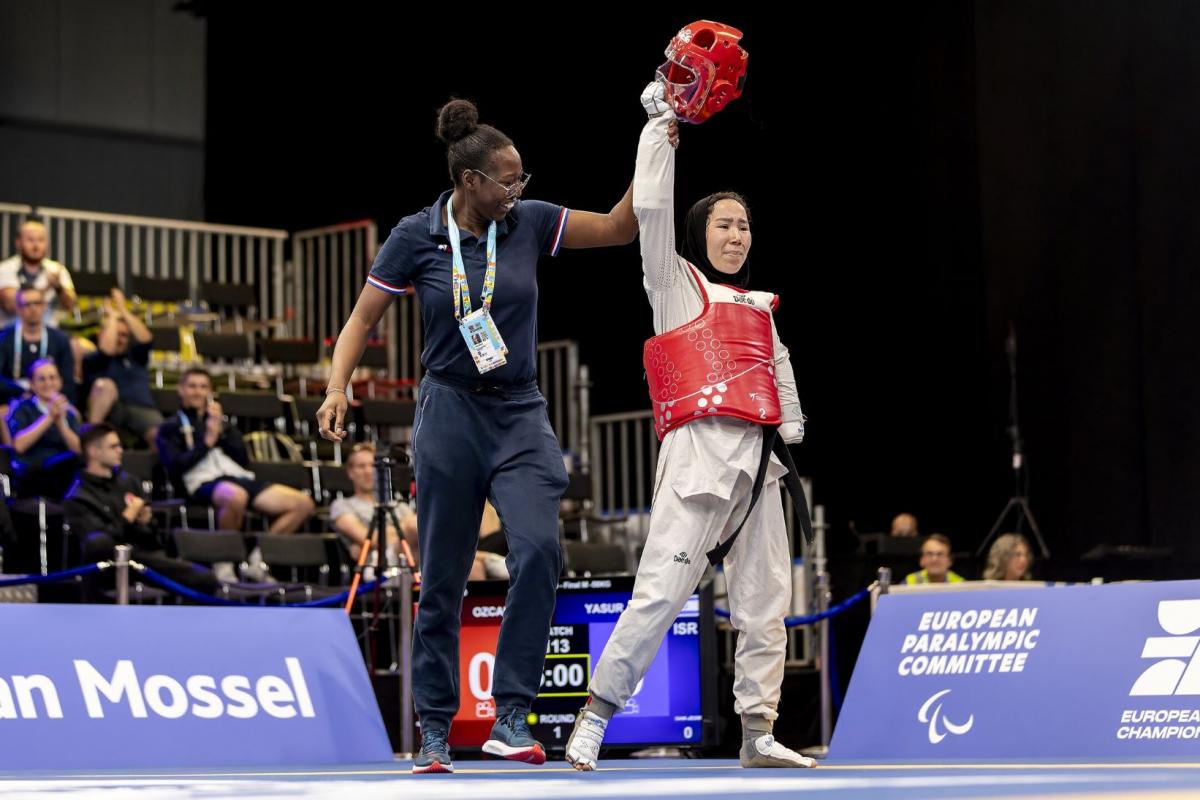
1. Tell us a little bit about your story.
I was born in Herat, Afghanistan, and started in sport when I was 9 with a dream of competing in the Paralympics. I succeeded and won the first international medal in the history of the country in my sport.
While in Afghanistan, I dedicated myself to empowering people with disabilities and advocating for women, raising awareness about polio and infantile paralysis. I lived in an insecure country, with daily explosions. Despite these challenges, I never wavered in my commitment and achieved my goal.
2. What are some of the biggest challenges you’ve faced in your life and your journey to Paris?
When I fled to France, I had to start from scratch. It was incredibly difficult – I didn't know the language and I was separated from my family, who were back in Afghanistan. Thankfully, my family was eventually able to make it to France, where they lived in a refugee centre for almost two years.
From a sports point of view, I missed a lot of important competitions while waiting to get my refugee status. The journey has been stressful on so many fronts.
3. Can you share any personal stories that highlight how much you have had to overcome to get to Paris?
My life was a constant struggle. Growing up in Afghanistan, I faced a world where disability wasn’t always understood. To avoid being bullied from the age of 7 to 15, I used to cover my hand with a big scarf to hide my disability. At the age of 10, I attempted suicide because I felt overwhelmed by a society that didn't understand me. However, I survived and came back even stronger. I fought for years to prove that disability is not a limitation.
4. How did you get involved in sport?
I was introduced to sport by a person who had a disability, who saw a strength in me, and encouraged me to do taekwondo, where he thought I had a bright future. He was my coach for 10 years. Since he himself could not achieve the dreams he had in his youth because of his disability, he wanted to make a champion out of me.
5. What has sport meant to you and your life?
Sport has been like a light and a miracle in my life. From the girl who hid her hand beneath her scarf, I have become a globally recognized athlete. Sport became the miracle that made those around me, and my fellow countrymen proud of me.
6. What is your biggest sporting achievement to date?
There are three medals I have won that hold great significance in my life. The first medal I won in the history of my country was very special to me and the people of Afghanistan.
Another highlight was the gold I won at the European Para Championships 2023, which was especially meaningful because it came around the time of the anniversary when I had to flee from my country.
The third medal was the gold I won to secure my spot for the Paris 2024 Paralympics. This came on [Internattional Women’s Day] March 8th and I dedicated it to all the women in my country who are deprived of their most basic rights.
7. What was the biggest lesson you learned on your journey?
My life has been a journey filled with ups and downs. I faced death threats and even contemplated suicide. What set me apart was my disability. When I looked in the mirror, I knew I was missing a hand. But I pictured in my head having an iron hand instead that made me impossible to stop. In that way, my disability has given me extra strength.
I persevered alone, overcoming numerous challenges that shaped me into the person I am today.
Even the last time I was Afghanistan, when hiding in the crowd at Kabul Airport to evade the Taliban, I never lost hope. It was hope and belief that saved me and enabled me to reach the Tokyo Paralympics and now Paris.
8. What does it mean for you to be on the Refugee Paralympic Team?
It is a great honour because I am representing millions of refugees who have disabilities in these Games, and I will participate with immense pride. I want to send them a message and show them we are examples of peace, acceptance, courage, friendship and equality. Hopefully we can inspire them and encourage them to follow their dreams.
9. What are your goals for Paris?
My dream is to win a medal, and I intend to prove to the world that, despite all the challenges and difficulties, I am here to fight for the rights of women in my country, for refugees and for those involuntarily thrust into perilous situations. I stand for all displaced women and children affected by destructive policies.





